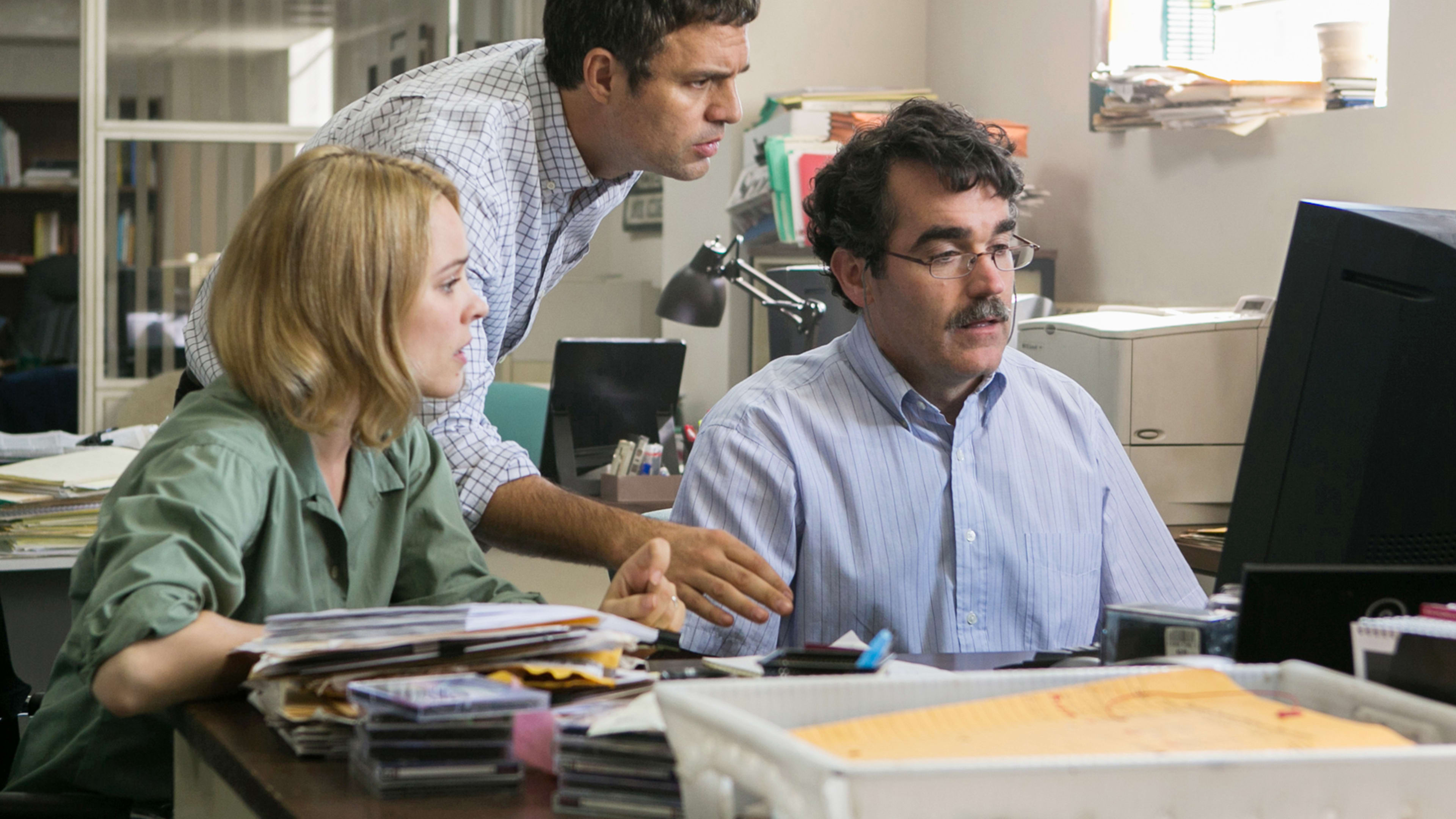The first time Josh Singer heard about wide-spread sex abuse by Boston priests, shortly before he started writing for television’s West Wing, the Harvard Law School graduate simply couldn’t handle the details. “I remember seeing headlines about what was going on in Boston but I was not able to read the articles because I found it too upsetting.”
Now, Spotlight co-writer Singer has found a palatable way to tell the story by transforming the Boston Globe‘s 2002 expose into a riveting procedural that simultaneously documents the virtues of long-form journalism and the horrors of Catholic Church-protected pedophilia.
Directed and co-written by Tom McCarthy, the movie follows Boston Globe “Spotlight” reporters (portrayed by Michael Keaton, Mark Ruffalo, Rachel McAdams, and Brian D’Arcy James) as they uncover child molestation perpetrated by 70 priests. Spurred by new editor Marty Baron (Liev Schreiber), the journalists interview victims, pore through thousands of documents, file legal briefs and coax sources to confirm facts before going to press. The filmmakers’ big challenge? “The newspaper articles showed the reporters’ findings, but there was nothing about how they got to the truth,” Singer says. “Tom and I had to figure out the procedural aspect of the story through our own reporting.”
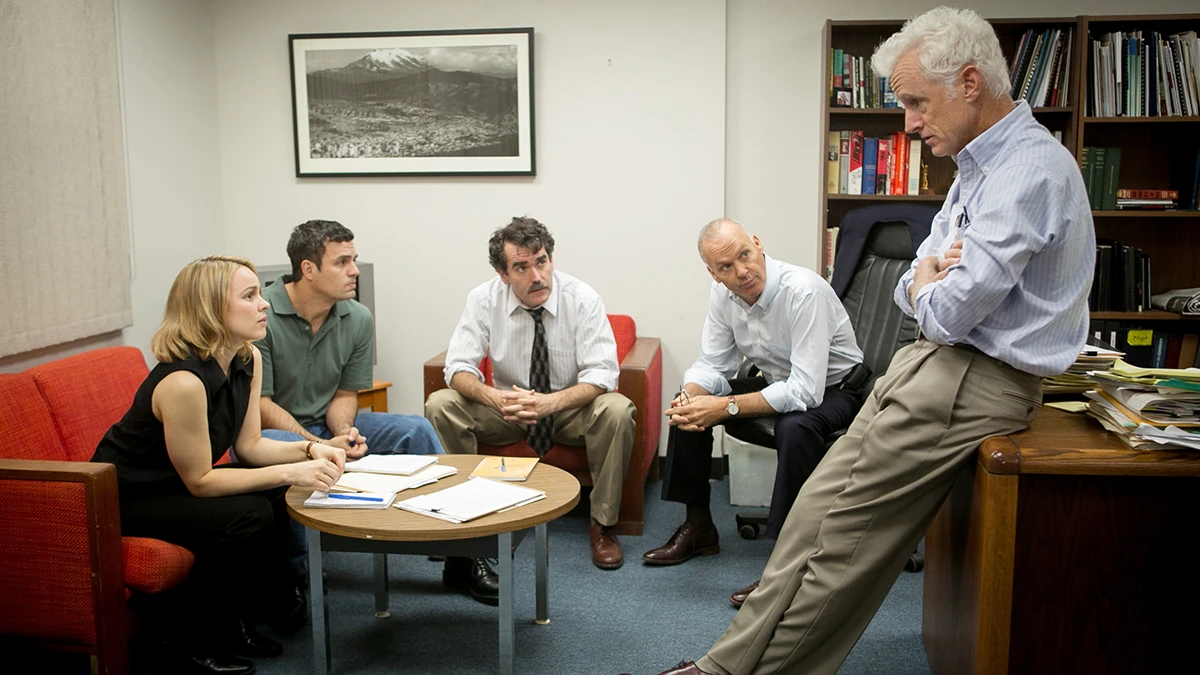
Getting to Know the Reporters
Singer launched his investigation of the Spotlight team by interviewing reporter Mike Rezendes, who happened to be in Los Angeles for a visit. “In August 2012, I took Mike to lunch every day for a week and recorded hours and hours and hours of tapes to get the story from his point of view. I often joke with the reporters, when they pull out their recorder, then I pull out my little Sony Digital recorder, which is the handiest tool in the world.”
Armed with a 54-page “notes document” that would form the films narrative foundation, Singer joined McCarthy in New York. That fall, they commuted eight times to Boston to meet time and again with the journalists. “From the very beginning, Tom’s watch word on this movie was authenticity,” Singer says. “We wanted to understand the reporters’ personalities and that came out of our primary research. Some things you only pick up on by hanging out and talking and talking and talking.”
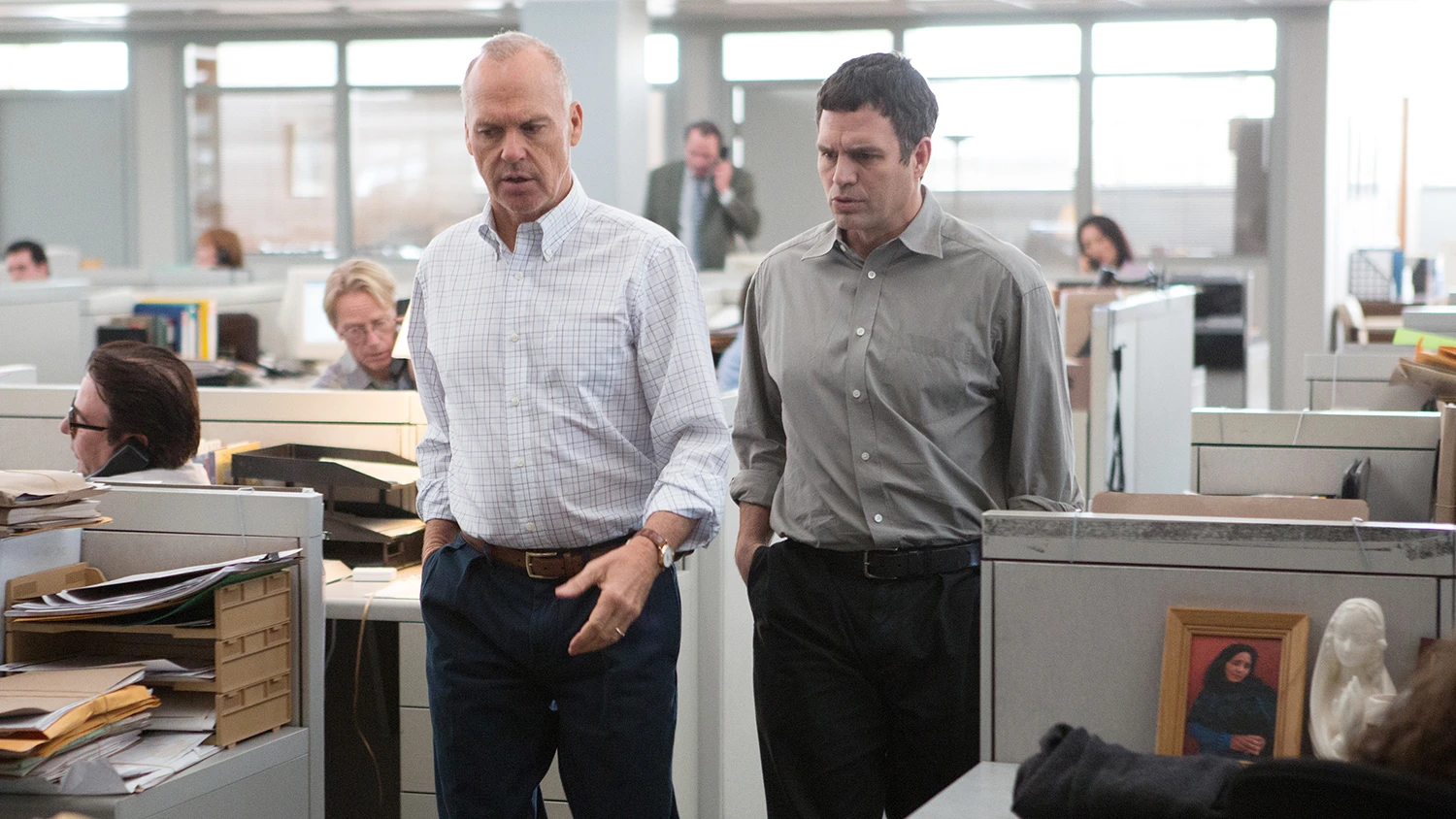
The face time paid off, Singer says. “We learned that Mike’s very much a bull dog and a lapsed Catholic with his own cross to bear with regards to the Church. Sacha’s super focused on details, so for her it’s a combination of this sort of severe intelligence and a natural warmth. Robby Robinson is the Boston everyman but he’s also the consummate insider.”
As for Globe editor Marty Baron, who ordered the investigation of priest abuse his first day on the job, Singer came away from their meetings deeply impressed. “Marty’s an outsider who could be cold and distant, yet he’s incredibly articulate and tough,” Singer recalls. “At first, Marty was not particularly beloved. One of the big themes in this movie is about deference to big institutions and Marty wasn’t interested in being deferential to the Church.”
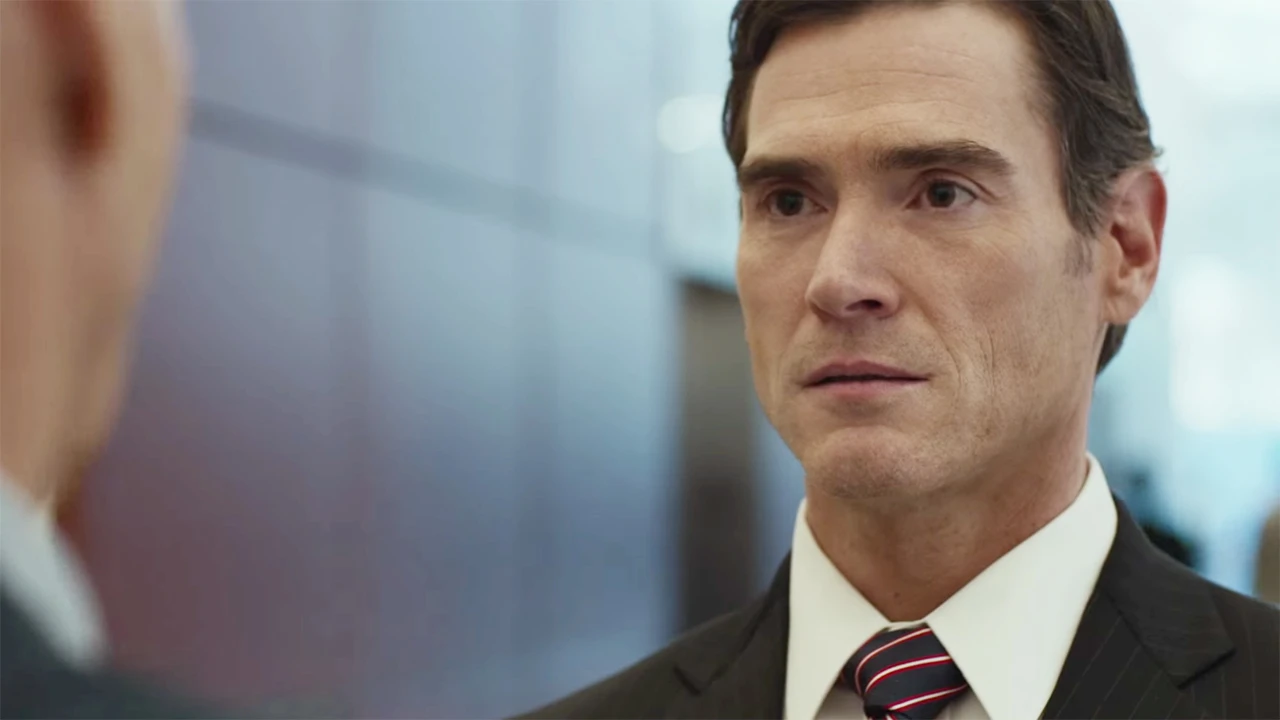
A Surprising Revelation
The filmmakers’ investigation proved so thorough, they uncovered a nugget of information that even took Globe reporters by surprise. “Eric MacLeish was the lead lawyer on most of the secret settlements made by the church with abuse victims,” Singer explains. ‘I was against interviewing him because I didn’t think he’d tell us anything useful but Tom said, ‘At the very least I want to see what he looks and sounds like so I can cast him. Let’s talk to the guy.’
A half hour into their conversation, MacLeish casually dropped a bombshell.
“Just like Billy Crudup says in the movie, MacLeish tells us ‘I sent the Globe a letter in 1993 with a list of 20 priests [accused of sex abuse] and the paper did nothing. They buried it.’ When we left the office, I was like ‘That’s total bullshit. No way is that true.’ But I went back into the Globe archives and did a document search. Sure enough, late 1993, here’s this article about 20 priests, buried on page B 42 of the Metro section.”
Singer and McCarthy were stunned. “We were as excited as two reporters who’d stumbled onto something. I asked editor Robby Robinson about what I’d found, because he’d just become Metro Editor at the time. He said, ‘I don’t remember the article but it happened on on my watch and we should have followed up on it.”
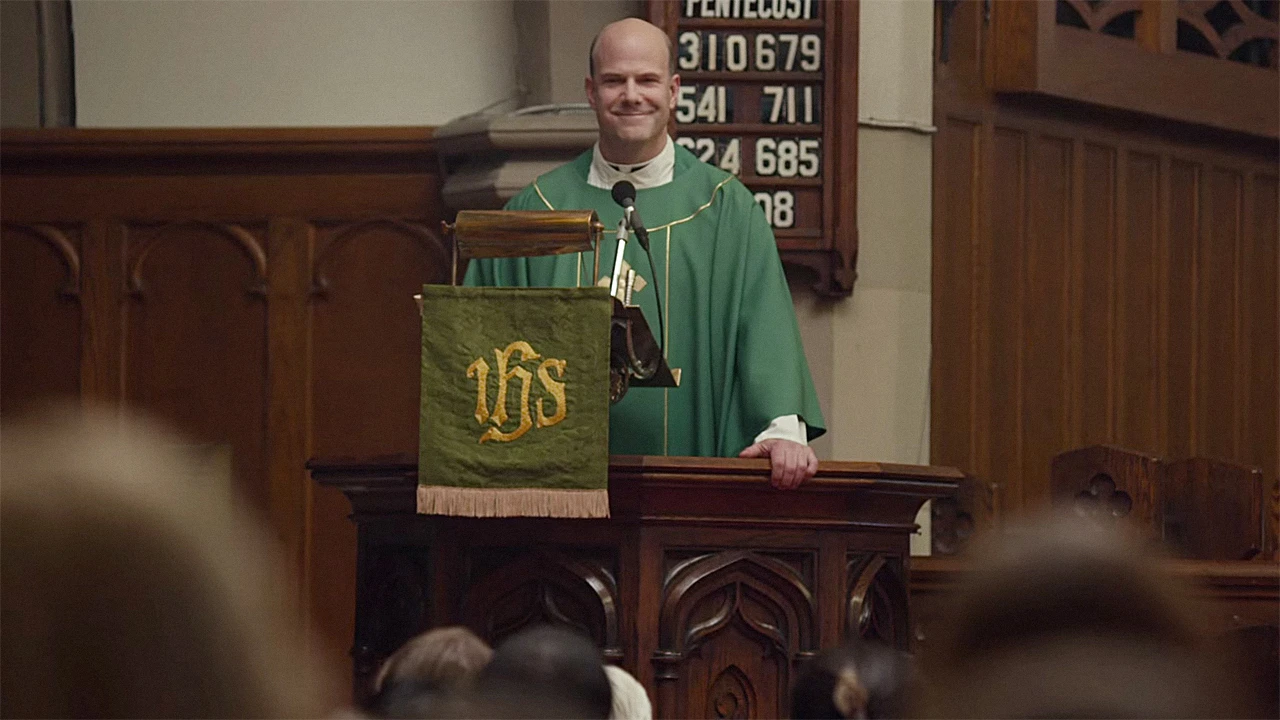
Talking to the Victims
To gain a first-hand grasp of the abuse documented by Globe reporters, Singer spent time with victims who’d been sexually molested by priests. “The first survivor I met was Phil Saviano and it was incredibly upsetting,” Singer says. “We also talked to Joe Crowley, who was lovely and charming the first time we met. Later, during the shoot we got him on set and he looked awful. Joe eventually wound up in the hospital. Now he’s on the mend, thank God. The Globe reporters dealt with the impact of priest abuse day in and day out. For Mike and Sacha and the rest of the reporters, there wasn’t one Joe Crowley. There were dozens.”
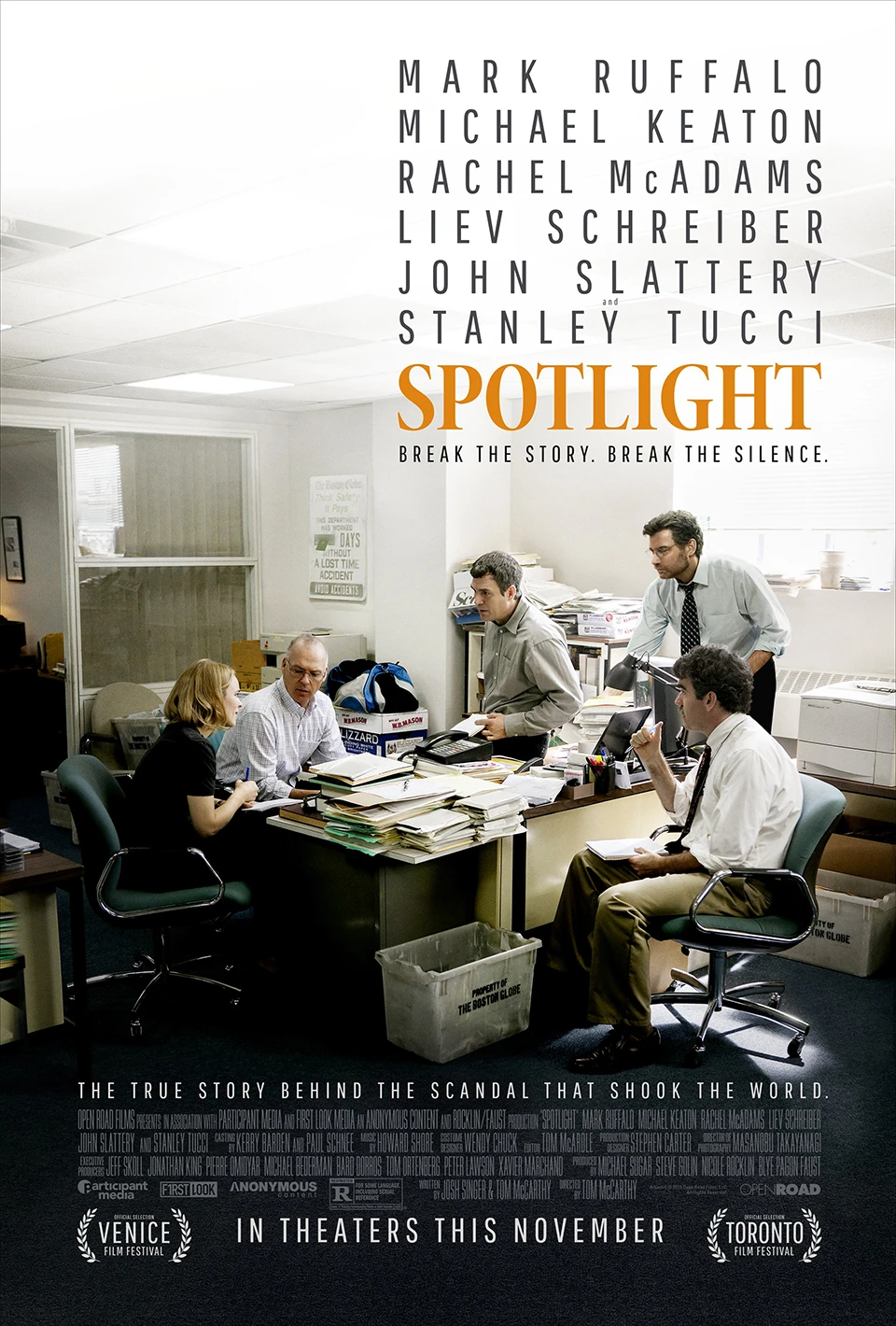
Hoping For Transparency
The Boston Globe‘s Pulitzer Prize-winning Spotlight expose inspired nearly 150 similar investigations in the United States and abroad. Singer hopes Spotlight, the movie, exerts a similar effect. “My mother was raised Catholic and I think a lot of the rituals are beautiful, but what I learned about priest abuse in writing this movie made me very angry at the institution of the Church,” he says. “They have said a lot, but I don’t think they’ve done nearly enough to protect kids. They’re still not transparent about the abuse that happened and continues to happen. When I saw Pope Francis come to the United States, I wanted to support him because I love what he’s trying to do with climate change and everything else, but he needs to get his own house in order.”
Recognize your brand’s excellence by applying to this year’s Brands That Matter Awards before the early-rate deadline, May 3.
